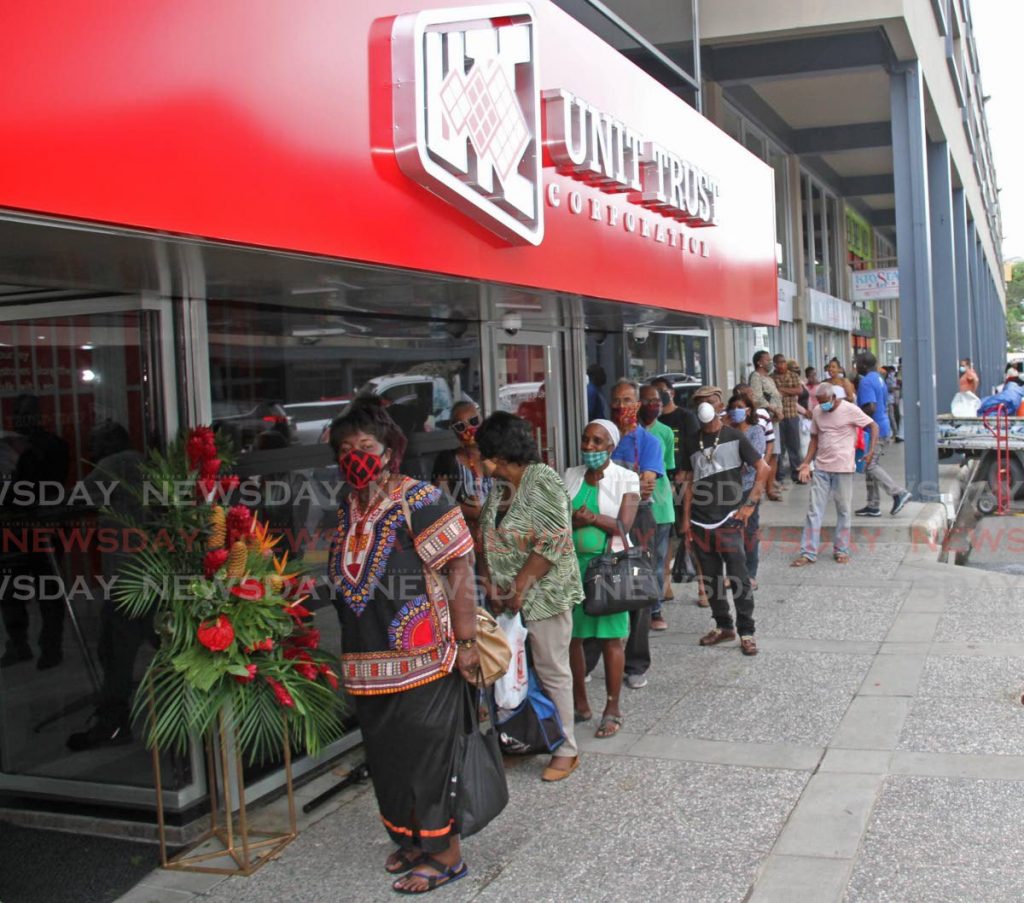Protecting the public's savings

The issue of whether idle cash balances of state-controlled entities like the National Insurance Board (NIB) and the Unit Trust Corporation (UTC) should be used to fund infrastructure has arisen during the election campaign.
In a proposal, UNC leader Kamla Persad-Bissessar called for a national infrastructure fund to support strategic investments in public transport, solar, water and wastewater facilities, climate-resilient infrastructure and green housing.
“The national infrastructure fund will be capitalised using the idle cash balances of state-controlled institutional investors like the National Insurance Board and the Unit Trust Corporation.”
These ideas were met with a response by the Prime Minister.
“Don’t put God out of your thoughts and let the UNC come into office and play fast and loose with the UTC and the NIB,” Dr Rowley said. “UTC has over 800,000 accounts, mainly of little people’s savings. You don’t want the UNC to be tapping into UTC cash reserves.”
In truth, both positions scratch the surface of deeper issues. And as with so much in politics, these issues are longstanding and straddle governments.
The issues of protecting and encouraging savings and of how to fund needed infrastructure cannot be separated from low levels of confidence in financial regulation, the large proportion of “unbanked” individuals, the use to which heritage and stabilisation funding is put and the need for a public procurement regime to protect national savings.
The NIB also faces the complicating factor of an increasingly aged population, a matter that has been projected for decades now.
It is certainly important to ringfence the UTC and NIB.
But protecting funds there is not just a matter of avoiding unnecessary overreach, it is also ensuring there is proper financial regulation to ensure such funds are being managed correctly in the first place.
The recent currency note exercises underlined a key fact. A lot of people prefer to stay away from financial institutions. This is not just to avoid fees. It is also evidently a matter of trust.
Has this country recovered from the fiasco that was Clico/CLF? Do the vulnerabilities revealed by the State’s handling, over successive governments, of that matter play a role in the fact that many are weary when it comes to savings and investments?
The UTC’s aim of encouraging savings should be understood today in this light, not just an abstract one from the days when the body was first formed.
The funding of infrastructure projects should ideally come from the Treasury (there is the Infrastructure Development Fund). But without proper procurement laws, how can we ensure those funds are not vulnerable to abuse?
Meanwhile, the Government can boast of showing some restraint when it comes to dipping into our rainy-day savings. But the Opposition would counter that the Heritage and Stabilisation Fund, which in theory rich and poor alike, should not be touched.
Therefore, while the use of idle cash at state entities is not an irrelevant matter, it is perhaps more pertinent to focus on protecting the country’s savings as a whole.

Comments
"Protecting the public's savings"